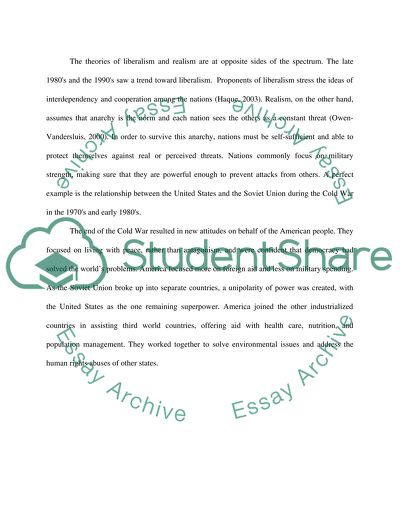Cite this document
(“How significant are the events of September 11th 2001 for Realist Essay”, n.d.)
Retrieved from https://studentshare.org/miscellaneous/1536175-how-significant-are-the-events-of-september-11th-2001-for-realist-assumptions-do-they-fundamentally-undermine-realist-assumptions
Retrieved from https://studentshare.org/miscellaneous/1536175-how-significant-are-the-events-of-september-11th-2001-for-realist-assumptions-do-they-fundamentally-undermine-realist-assumptions
(How Significant Are the Events of September 11th 2001 for Realist Essay)
https://studentshare.org/miscellaneous/1536175-how-significant-are-the-events-of-september-11th-2001-for-realist-assumptions-do-they-fundamentally-undermine-realist-assumptions.
https://studentshare.org/miscellaneous/1536175-how-significant-are-the-events-of-september-11th-2001-for-realist-assumptions-do-they-fundamentally-undermine-realist-assumptions.
“How Significant Are the Events of September 11th 2001 for Realist Essay”, n.d. https://studentshare.org/miscellaneous/1536175-how-significant-are-the-events-of-september-11th-2001-for-realist-assumptions-do-they-fundamentally-undermine-realist-assumptions.


